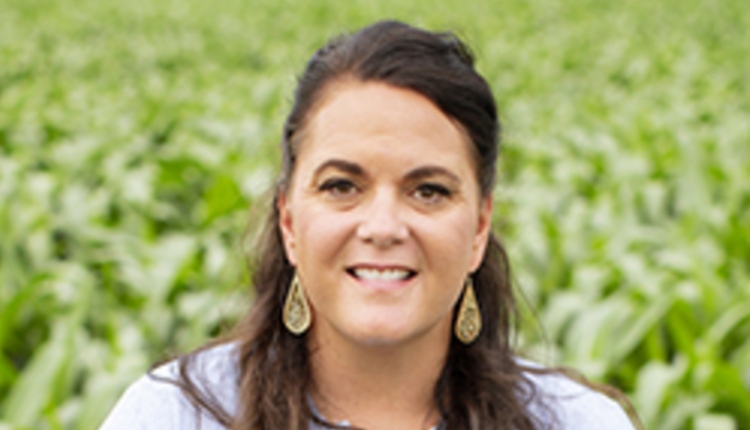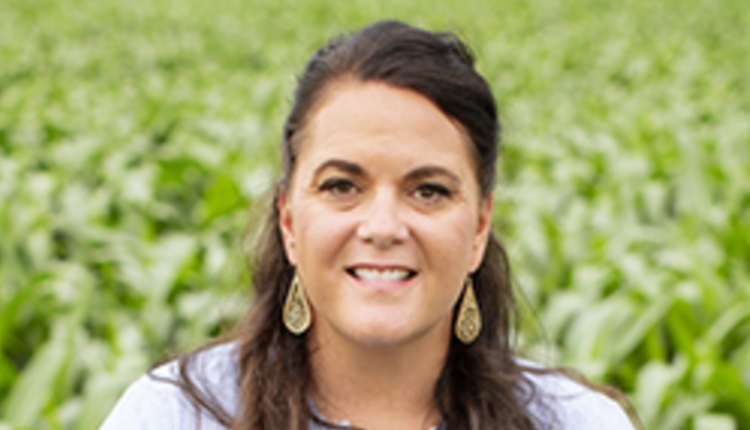
Despite living in the home of John Deere and being surrounded by hundreds of acres of corn, my three children — Tyler, 15; Cassie, 13; and Jacob, 9 — are a minority. The reality is that they are the only true farm kids that attend their respective schools.
Some days this is really difficult for me to wrap my head around. I, too, grew up with many kids whose parents didn’t farm, but I still knew several kids that had to rise early enough to get their chores done prior to catching the bus. The same held true in the evening. Our 4-H club had 60 members and the county fair was booming with market animals exhibited by 4-H and FFA members.
But, the reality is those days are dwindling. More and more people are disconnected from agriculture.
However, that doesn’t have to be the case. We as farmers can connect with those that don’t farm by sharing where our food comes from and how we care for animals and crops.
Yes, there are social media channels to share your story. Many of you already do that. So do I.
But, what I think we can capitalize more on is opening our barn doors to the community. In my case, we have opened more than just the doors to our barn, but the doors to our home as well. After school and on weekends, we have extra kids here, sometimes a dozen or more. They play air hockey and basketball and hang out with our children.
I’ll be the first to admit that my grocery bill has doubled, but those kids that use our farm as their gym are also the same kids that lend an extra hand on the farm when needed. They have sorted and vaccinated heifers, baled straw, fed calves, and so much more.
So, even though my kids are the only farm kids in their school district, I don’t lose sleep over it. That’s mainly because their peers have an appreciation for the lifestyle my kids live.
These kids come from all backgrounds. Some have two parents that work long hours and see their children on a limited basis. Others come from broken families. Both situations remind my children how blessed their simple yet bustling life is. In my eyes, what these nonfarm kids long for are really the basic things that farm life and farm families can provide.
They desire consistent schedules, and farm life provides just that with morning chores and afternoon chores, and milking three times a day. “Mrs. B, is it time to feed calves yet?” they ask. These kids have become more like family to us, and they love the simple and consistent life farming provides.
They long for hot meals around a big table. It’s a sacred place to talk about their blessings and their challenges, while nourishing their bellies and feeding their souls.
When I leave the farm to go to school or kids’ activities — heck, even when I go to the grocery store — I run into these kids. Sometimes they are on their own, sometimes with their family.
They remember a sick calf and ask, “Did she drink her bottle tonight?” In return, I ask them about how they did on their algebra test. It is a sense of companionship that really is lost in today’s world. It also forms lasting relationships.
Part of the beauty is illustrated by my children, who once complained that they were the only farm kids in their school. “Nobody else has to get up early to chore before going to school,” they used to say. And, while that might not have changed, they now understand that many of their friends, especially the ones that have been out to our farm, would trade places with them in a heartbeat.
Those kids ooze with jealously over the simple things. Two parents who live and work together, and beyond that, multiple generations that do. The fact that we all sit down and eat, even if it’s only for five minutes in the shop before we veer in different directions. They love the open communication. And, really, they love the responsibility that we place on our kids’ shoulders.
I wholeheartedly believe kids will only do as much as they are expected to. Some of these kids who come over have little to no expectations set by their parents.
On the other hand, our kids are expected to get up before school and chore, and they come home from school or after football practice and do chores. They are asked to mow hay, bale straw, feed calves, and be a part of the work crew here at Bohnert Farm. They know to keep good grades on top of it all. They are expected to clear their plates and push in their chairs and thank the cook before leaving the dining room. My kids’ friends long for that — routine and expectations are what drive kids.
I encourage you all to open your barn doors, and if you feel comfortable enough, open your home, too. Kids of all ages long for the simplicity, yet high expectations, that farm families have. The results positively impact our communities in more ways than one.
Around the Kitchen Table is a regular column in Hoard's Dairyman. The author and her husband work in partnership with family on a 500-cow dairy in East Moline, Ill.







